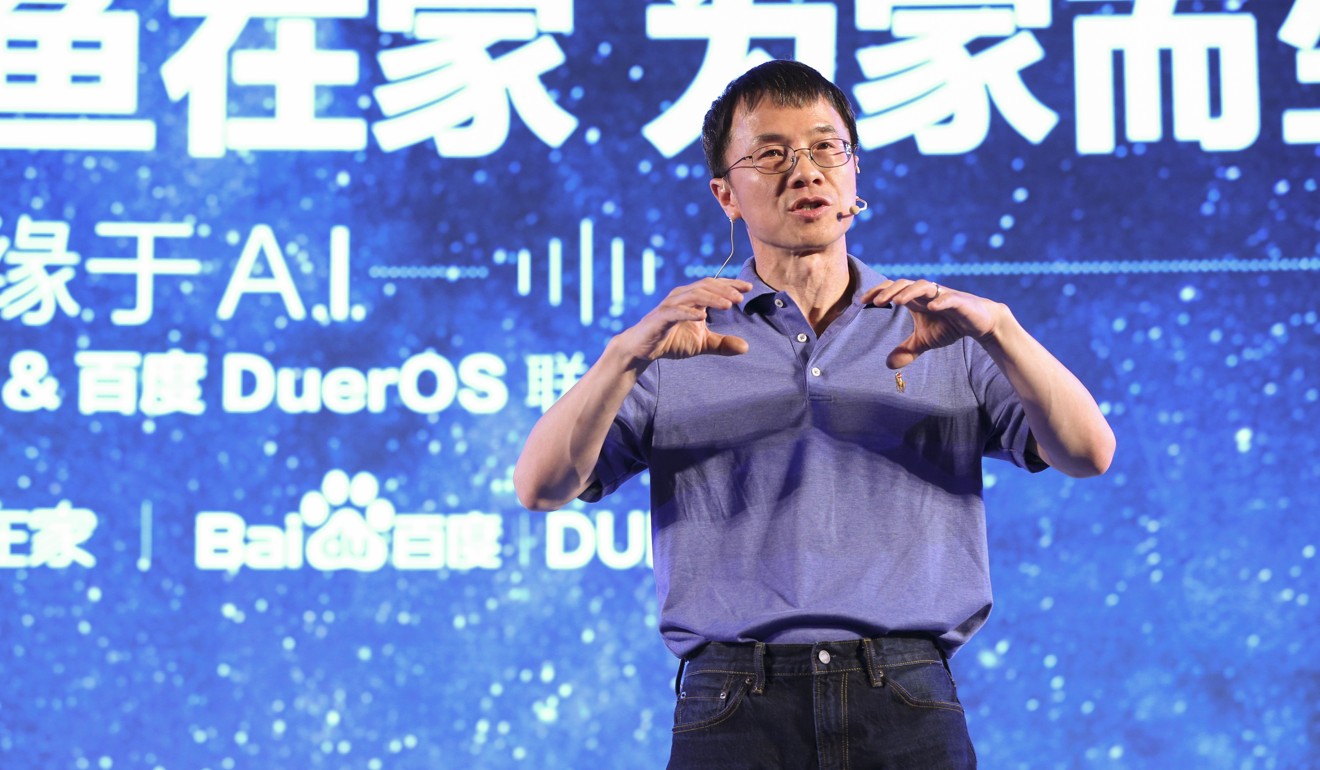
Baidu loses another AI expert, a setback in its accelerated push in the technology
The Baidu Deep Learning Institute chief’s departure comes as the company’s fourth quarter earnings forecast misses analysts’ estimates
Baidu, the operator of China’s dominant online search engine, has lost another top-notch artificial intelligence (AI) expert, the latest blow to the company’s effort in making the technology the centrepiece of its business revival plan.
Lin Yuanqing, former head of Baidu’s Institute of Deep Learning, whose research focus includes image recognition and human-computer interaction, has confirmed to the mainland media that he had resigned from Baidu in September and will set up his own AI business to “create big value” for traditional industries.
Lin was unreachable for comment on Friday afternoon. Baidu declined to comment, but numerous sources close to the matter have confirmed of Lin’s departure from the company.
Lin’s resignation is the latest high-level AI scientist to leave the Beijing-based technology company, which is betting huge on AI to turn around its business that was hit by a regulatory scandal in 2016.
The company, listed on Nasdaq, predicted on Friday that its sales will reach between 22.23 billion yuan (US$3.34 billion) to 23.41 billion yuan in the December quarter, falling short of the projected 24.8 billion yuan. Baidu executives had warned investors not to expect near-term gains from its Apollo autonomous car platform or voice assistant DuerOS, which required long-term investments.
“Baidu’s core search business is under threat by social media and e-commerce companies. Everyone in China internet has an AI focus, so Baidu does not really stand out,” said Kirk Boodry, an analyst with New Street Research.
“AI is not a business model in itself. Baidu does appear to be a likely leader in autonomous driving but that will not be monetised before 2020 and it is not yet clear how that will be done,” said Boodry, whose company has a “neutral” recommendation on Baidu.

“There are huge opportunities in starting up in artificial intelligence, especially in China,” said Dickie Ke, a Hong Kong-based entrepreneur and former executive with Microsoft and Nokia.
Everyone in China internet has an AI focus, so Baidu does not really stand out
China’s push to develop AI underlines a national strategy with a three-step road map to transform the country into a global AI leader and industry worth 1 trillion yuan by 2030.
Ke believes that given the central government’s support for AI, Chinese technology companies are likely to invest more resources into hiring the best talent.
“Baidu, Alibaba, Tencent and the likes are still hiring good talents from around the world. Both Tencent and Alibaba have set up their research centres in Seattle to be close to their competitors Amazon and Microsoft and to attract talents, while Baidu has set up a lab in Silicon Valley just like Google and Tesla,” Ke said.
In March, Baidu lost its chief scientist Andrew Ng, who left the company to set up his own AI firm. In September, Adam Coates, a well-known figure in the AI community, left his job as director of Baidu’s Silicon Valley AI Lab.
Baidu reported net income of 7.9 billion yuan for the three months that ended September, compared with the 3.88 billion yuan projected. Sales hit 23.5 billion yuan, matching analysts’ estimates.
But the worse-than-expected forecast for the December quarter has dragged down Baidu’s share price, which lost 10.33 per cent in after-hour trading on Thursday, after closing at $260.62 in New York.


